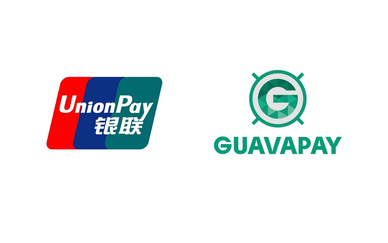Banking-as-a-Service (BaaS) platforms have built a new frontier in the fintech landscape, and are strengthening their position in the rapidly changing market by expanding the areas that fall under embedding.
A recent survey of 1,600 executives, conducted by IT group Finastra, shows that nearly 85% of senior executives expect that BaaS solutions will have a significant impact on the industry within the next 12-18 months. This is no surprise since BaaS is growing by leaps and bounds, having reserved the largest portion of the market profit.
Future Market Insights also predicts that the demand for BaaS platforms will rise by 15.7% CAGR between 2021 and 2031, in comparison with the 11.8% CAGR registered from 2016 to 2020.
BaaS technology is favoured for its inherently adaptive nature. It’s positioned as one of the game-changing technologies in the industry, providing customers with solutions and products to get good quality services through trustworthy channels.
BaaS offers opportunities in the banking and payment ecosystem that most organizations predict will help them drive new revenues, thanks to its enhanced customer experience.
However, the main philosophy behind Banking-as-a-Service technology is not just increasing earnings. It’s the opportunity for companies to become payment providers, making payments flawless and invisible, while democratizing the way customers build their propositions.
As for the current situation, BaaS has already taken a significant position in the customer-oriented market and is the new frontier for innovating, penetrating and disrupting areas that are directly related to finances and payments.
The importance of regtech
Regulation and compliance are the basis that predefines the direction of the payment industry. The use of technology to streamline the regulatory process in financial services continues to evolve from year to year, underpinned by a basic demand for the provision of secure and fraud-free payment services.
The parabolic growth of the BaaS has shaken the balance between regulation and payments. There needs to be a transparent collaboration between the participants of the payment value chain to ensure appropriate regulatory compliance and risk management. This would be enhanced by the implementation of disruptive propositions and collaboration of regtech.
A new report published by Juniper Research, ‘Regtech: Emerging Trends, Regulatory Impact & Market Forecasts 2022‑2026’, predicts that BaaS will play an enhanced role in accelerating AI-based automation for online document verification and KYC (Know Your Customer) processes. The report asserts “the integration of regtech services with BaaS models as key to realising this future market growth”.
BaaS includes the outsourcing of regtech services, AI-powered onboarding facilitates digital onboarding, and real-time reporting and automation, enabling companies to save time, meet client expectations and reduce compliance costs. This aspect of BaaS use will develop towards AI-based tools for fraud detection and management.
Banking-as-a-Service and crypto.
Digital currencies and crypto are leading the mainstream and main disruptions list this year. According to Buy Bitcoin Worldwide, the global crypto market cap sits at $1.06 trillion as of August 1, 2022. Crypto’s cutting-edge technologies and increasing customer demand provide a vast field of opportunities for companies to stay relevant and competitive.
In the case of BaaS platforms, crypto and other digital currency offerings may radically increase the opportunity for high returns. However, stringent regulation and compliance requirements still play a significant role in adoption, and most companies prefer not to indulge in crypto.
Some companies have adopted their platform to support the crypto-fiat movement since integrations with a compliant platform can facilitate the crypto-fiat workflow in a regulated and compliant environment.
In addition, a new model of crypto interaction has been built on the same logic as existing finance solutions – Crypto-as-a-Service (CaaS). CaaS platforms are usually white-labeled for financial institutions that want to offer crypto trading, brokerage, and custody to their customers. Financial institutions are able to integrate popular crypto capabilities into their financial propositions, enabling them to buy, sell, and hold the most popular digital assets.
In a sense, CaaS is an extension of the BaaS solutions that will allow any bank, fintech, or financial service provider to offer crypto products through their infrastructure.
 Sign in
Sign in



